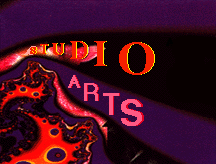
Section Limit Enrollment Available 01 15 14 1
Artists in all media have historically responded to common, formal and ideological motivations. These motivations encompass the very fabric of a liberal arts education. This course is intended to strengthen such a liberal conversation among the various studio art disciplines, as well as to develop that conversation as the foundation for making art. The course will be taught by one studio art faculty member, who will set the terms of the topic or discussion. Though primarily intended as an elective for studio arts majors, the course is also open (at the descretion of the instructor) to majors from other departments who wish to bring their work into the forms of questioning that the structure of a studio might offer. It offers a context in which all may learn from seeing different approaches brought to bear on the same questions, and is intended to break down the kinds of compartmental thinking that inhibit an artist's broader development. At the beginning of the semester topics will be introduced through readings, discussions, and/or visual precedents to which students will be asked to respond in/through their individual media. These individual responses will then be evaluated in group critiques in which faculty of the disciplines involved will often participate along with the instructor and students themselves. During the latter weeks of the studio, each student will be asked to expand his/her investigation to include a studio discipline other than his/her own. Final work will be evaluated in regard to how successfully the student has bridged disciplines. Topic for Fall 1996: TO CIVILIZE -- to bring out of a primitive or savage state; educate or enlighten; refine. Art-making is by definition an act of civilizing, a process by which a substance (the medium) is organized in accordance with the artist's sensibility. The medium begins in a raw state, its natural structure devoid of specific cultural reference. It awaits the imprint of the artist, whose shaping intelligence imbues the substance with meaningful structure, and thus involves it in human discourse. Artistic activity thus functions as a process in which concepts of what constitutes a civilized human being, a civilized social system, and a civilized environment are played out and field-tested. In this course, we examine various aspects of human cultural production to inform our own civilizing activity as artists. Students will create artworks in response to readings and specific cultural artifacts and phenomena.
COURSE FORMAT: Seminar Studio
Level: UG Credit: 1.00 Gen Ed Area & Dept: HA ART
Prerequisites: None
Last Updated on MAR-10-1997
Copyright Wesleyan University, Middletown, Connecticut, 06459